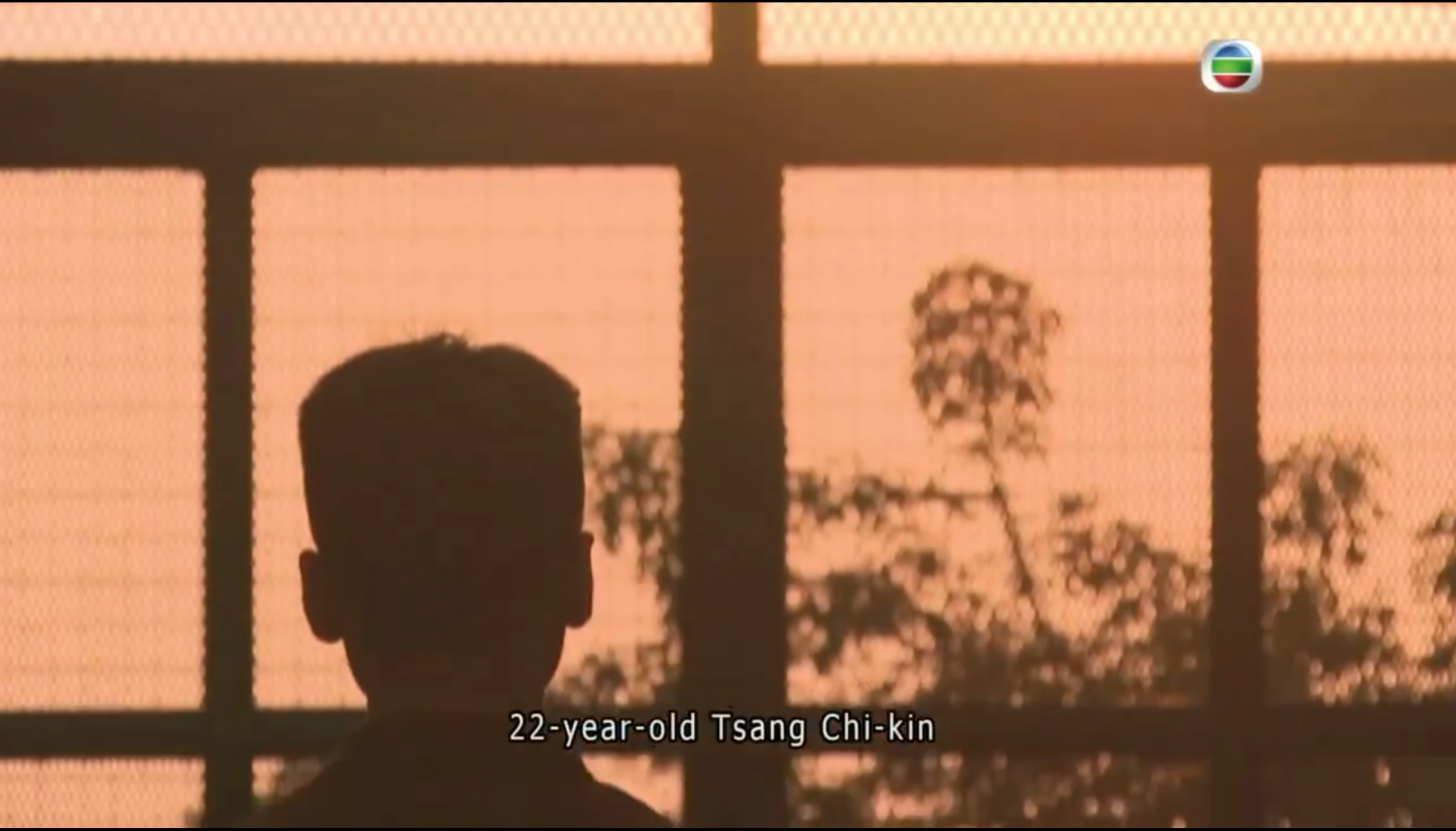The recent appearance of two political prisoners in a television program has led many to believe that the mainland Chinese practice of “televised confessions” has found its way to Hong Kong.
The Television program “National Security Law — the Cornerstone of Prosperity and Stability” (有法安國 NSL — the Cornerstone) is jointly produced by the Hong Kong Police Force and TVB, Hong Kong’s biggest free-to-air television station.
With 12 mini-episodes, the TV program depicts the massive protests in 2019, as a riot aided and instigated by some operators to justify Beijing’s enactment of the National Security Law in Hong Kong.
The prolonged protests in 2019 were triggered by an extradition bill that authorizes Hong Kong to extradite crime suspects to mainland China for trial. Peaceful rallies escalated into destructive protests amid the police’s repressions and pro-Beijing counter-protests.
The two political prisoners who appeared on the television shows are Tsang Chi-kin, 22, and Tong Ying-kit, 26.
Tsang was shot by the police during the 2019 protests and hid out for two years after jumping his bail. He was arrested after a failed attempt to flee to Taiwan and sentenced to 47 months in prison in September 2023 over rioting and police assault during a protest on October 1, 2019.
The Hong Kong Police Force has published Tsang’s interview on X (formerly Twitter):
In the show, Tsang said he was affected by the intense atmosphere. The narration then cut in and said, “he was later provided with gear” and that after he was arrested, “he met a middleman who persuaded him to jump bail.” Tsang also talked about his miserable life during the two-year hideout.
Tong is the first person prosecuted under the NSL. He was arrested on July 1, 2020, after he drove a motorcycle with a flag reading “Liberate Hong Kong, revolution of our times” into three police officers during an authorized demonstration against the enactment of NSL. He was given a nine-year jail sentence for incitement to secession and committing acts of terror.
During the interview, Tong also said he was affected by the atmosphere and believed that “violence” was the only way to solve the problem. He also expressed remorse that his act had punished people around him.
The narrator explained that Tong had been provided with the opportunity to receive full-time education at Ethics College, a newly established prisoner correctional institute and that he had taken part in a Chinese flag-raising ritual of its opening ceremony.
Both overseas Hong Kong activists and human rights organizations described the shows as mainland Chinese-style televised confessions:
China has systematically televised confessions made by arrested or convicted human rights activists either through force or by coercion to discredit political dissidents. Such practice attracted more international attention in 2016 after Swedish activist Peter Dahlin exposed in detail how he was detained and forced to confess that he had “harmed the Chinese government” and “hurt Chinese people’s feelings” on a China state-owned television show.
Dahin’s group, Safeguard Defenders, further revealed in a report in 2018 that most of the televised confessions in China were “extracted by police through torture, threats to loved ones and promises of lenient treatment.”
While this is the first time a local television station has taken part in the production of “televised confessions”, many in Hong Kong remember well how a local bookseller, Lam Wing Kee, was forced to confess back in February 2016. The bookseller later said that he was coerced to read the script for the show.
However, judging from the two episodes, the local production is distinctive from the mainland Chinese televised production. Hong Kong current affairs commentator Fung Hei-kin examined the difference:
Mainland China’s “televised confessions” are usually broadcast before a conviction is handed down by the court, to tell the audience: that the arrest is reasonable and justified, and that he has confessed to the crime. How would the Chinese Communist Party wrong a good person?
As for those who “confessed” in the “NSL – the Cornerstone”, they have already gone through the “sunshine” judicial process — as Hong Kong has the “Rule of Law” — the order is different from the Mainland Chinese production but the objective is the same. It is the same kind of propaganda: the court’s ruling is justified and reasonable, and see, he himself has confessed it outright. How would the National Security Judge wrong a good person?
Safeguard Defenders’ campaign director Laura Harth reminded people that the practice of televised confessions is also a means to instil fear and disparity into the community:
When asked in a public occasion by the press if Hong Kong has imported the Mainland-style “televised confession”, the Secretary of Security Chris Tang answered:
It is very noble for those who have committed crimes in the past to repent and share their feelings, and to remind young people not to break the law inadvertently. If anyone describes their good intentions and noble sharing as something bad, I think it is an insult to their sincere repentance.







